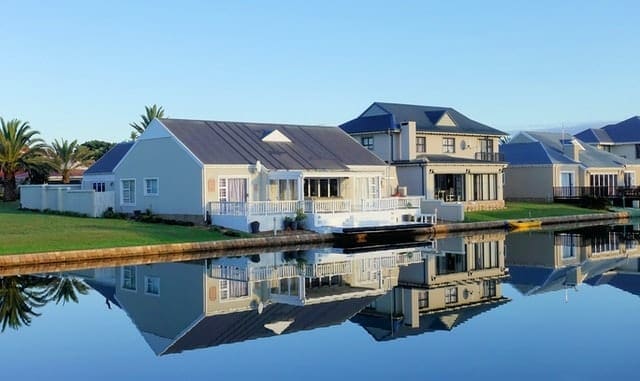Sectional title sales now comprise more than half of all property sales in South Africa, with price growth for this type of asset exceeding that of freehold properties for the first time in two decades.
This is according to Renier Kriek, Managing Director of Sentinel Homes. “Sectional titles made up 54% of total property sales in Q4 2023 – up from 44% in 2013. As sectional title ownership continues to gain in popularity, it may be lucrative for purchasers and investors who buy now and gain from the anticipated long-term trend,” he says.
However, knowing the ins-and-outs of sectional title schemes will help them maximise their returns and avoid common pitfalls.
What is a sectional title?
Although popular, many buyers – and even some realty professionals – don’t really understand the term. It is very different from a freehold property where the buyer purchases both the land and the buildings on it.
With a sectional title, the buyer owns only a volume of space within the building, measured from halfway through the outer walls and up to ceiling level. The underlying land – or common property – is owned as an undivided share by all the owners in the scheme. Understanding this distinction is critical.
Why is sectional title so popular?
Kriek says that property is becoming unaffordable as asset prices continue to rise faster than salaries, a trend that started nearly 70 years ago.
Sectional titles are not only cheaper to build than freehold properties but also less expensive to buy, making them the more attractive option.
In addition, owners can enjoy communal benefits they often can’t afford themselves, such as a swimming pool, gym, or entrance and perimeter security.
Tips for buyers
Before buying:
- Always ask to see the scheme’s financial statements to ensure its position is sound. Owners share the legal risks and rewards, so don’t become a prisoner to the poor money management skills of the trustees or your fellow owners. Check for commercial solvency especially, using a Youtube tutorial if necessary. Check that levies are being collected promptly to prevent the scheme from falling into disrepair – this you can do by calculating the percentage of the annual levies that have converted to debtor balances on the balance sheet.
- Assess the management style and competency of the trustees, as well as the attitude of the community, which can range from amicable to near fascist.
- It’s always a good sign if the scheme is controlled by a managing agent, rather than by the trustees or owners directly, and such a managing agent is required to be registered under the Property Practitioners Act.
- Exclusive use areas, such as garages or carports, may be registered to you or assigned under the scheme rules. Always double check with a trustee that exclusive use areas you were promised by the seller or estate agent really are yours.
- Don’t forget the basics that influence the resale value of the property, such as proximity to schools, doctors and shopping centres, and other such considerations.
- If you want to make improvements to the property, such as installing solar panels, remember that you usually do not directly own any space outside the building – including the roof – so the scheme rules may prohibit you from doing so. Be sure to investigate your options before deciding to purchase.
Tips for investors
In addition, before investing:
- Make sure the scheme rules are favourable to your intended use, such as letting out the property or making improvements outside the building.
- Some body corporates prohibit short-term rentals like AirBnB for fear that unruly occupants could compromise the security or peace of the community. Even if these are allowed, the rules may change! Test the probability of such rule changes by estimating the proportion of owner-occupied units, who are the most likely to support changes prohiting short-term letting.
- Some countries are passing legislation restricting the number of days a property may be listed on AirBnB, so consider the chance this could happen in South Africa and have a backup plan to keep your units profitable.
Closing thoughts
As price growth and sales increase, the time may be ripe to buy one or more sectional title properties, as long as buyers do their due diligence and check all the necessary boxes.
“With a freehold property, it’s mostly what you see is what you get. With a sectional title, you need to check the details most people don’t to ensure you buy the right property and get the full value you expect from it,” says Kriek.
